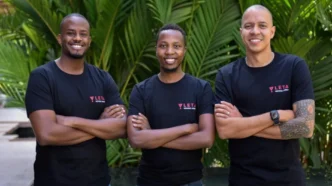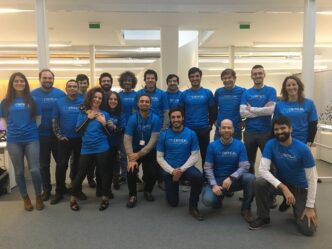African businesses face some of the highest logistics costs in the world — paying up to four times the global average just to move goods. According to the African Development Bank (AfDB), logistics alone account for 75% of product costs across the continent, inflating prices on essentials like food and medicine. Much of this burden stems from outdated, manual systems that slow down deliveries and increase expenses. But one Kenyan startup is determined to change that. Nairobi-based Leta, a logistics software-as-a-service (SaaS) provider, has just secured $5 million in seed funding to supercharge its mission of making goods movement cheaper, faster, and smarter across Africa.
Leading the round is European venture capital firm Speedinvest, with participation from Google’s Africa Investment Fund and Equator, a climate-focused fund backing sustainable tech solutions in Africa.
This new funding follows Leta’s $3 million pre-seed round in 2022, which allowed the company to strengthen its presence in Kenya, Nigeria, Uganda, Zambia, and Zimbabwe — five of Africa’s most dynamic logistics markets.
At the core of Leta’s offering is a powerful AI-powered platform designed to optimize delivery routes, track shipments in real-time, streamline payments, and deliver actionable shipping insights. By eliminating guesswork and human error, Leta helps businesses cut logistics costs while improving delivery efficiency.
Cutting Costs, Reducing Emissions — One Route at a Time
For many African businesses, logistics are still managed manually, relying on intuition rather than data. Leta’s platform changes the game by integrating directly with clients’ ERP, POS, and OMS systems, pulling live order data like SKUs, prices, and customer details.
Once an order enters the system, Leta automatically selects the most suitable vehicle and determines the best loading method — whether First-In-First-Out (FIFO) or Last-In-First-Out (LIFO). This replaces time-consuming manual planning with AI-driven precision.
Leta then automates dispatch planning and route optimization in real time. Its system even adapts to road conditions on the fly, avoiding trouble spots like flooded roads, police checkpoints, or construction zones.
“For instance, if trucks struggle to pass through a certain roundabout due to frequent disruptions, our AI identifies it as a high-risk route and reroutes deliveries,” explains Founder and CEO Nick Joshi.
By optimizing fleet use and delivery routes, Leta not only lowers costs but also cuts down fuel consumption and emissions — a major reason behind Equator’s backing.
Mapping Africa’s Evolving Roads, One Delivery at a Time
Interestingly, Leta’s live mapping capabilities have caught the attention of Google itself. Unlike static maps that may not update frequently, Leta’s platform continuously refines road data based on real-world deliveries. In some areas of Nairobi, for example, Leta’s system has more up-to-date road and address information than Google Maps.
“We’re building a much richer map layer, and that’s what made Google interested,” Joshi shares.
Beyond logistics, Leta sees a natural evolution into embedded financial services — offering products like fuel cards, asset financing, and supply chain financing for FMCG merchants. The startup is already piloting some of these financial tools to help delivery partners and merchants optimize operations.
Speedinvest’s Deepali Nangia sums up their support: “Leta’s unique model uses logistics as a gateway and fintech as a growth driver, unlocking new business opportunities.”
While some African logistics startups like Sendy, Lori, and KOBO360 took an asset-heavy approach — buying or aggregating trucks — many struggled to scale sustainably. Leta, however, followed a different playbook.
Inspired by global players like Bringg, Onfleet, and Shipsy, Leta focuses purely on software. It partners with fleet owners rather than owning vehicles, helping them maximize efficiency and fleet utilization without the burden of asset management.
That model is paying off. Leta now supports over 35 major clients, including global brands like KFC and Diageo, as well as African leaders like EABL and Gilani. The platform handles 10,000+ daily trips across its five core markets.
Since 2022, Leta’s growth has been explosive — scaling from 500,000 deliveries to 4.5 million, increasing goods moved from 20,000 tons to 150,000 tons, and expanding its managed fleet from 2,000 to 7,400 vehicles. As a result, revenues have grown 5x, all while operating on a per-delivery pricing model.
The next step? Leta plans to double its revenue as it expands further into Africa and the Middle East, deepening relationships with clients like KFC and Diageo.
“A company with 70 trucks can save up to $30,000 a month using Leta,” says Joshi. “We’re also aiming to start tracking carbon emissions this year, making sustainability a core focus.”
As African supply chains modernize, Leta’s software-first approach positions it as a game-changer — delivering efficiency, savings, and sustainability in an industry long overdue for disruption.













